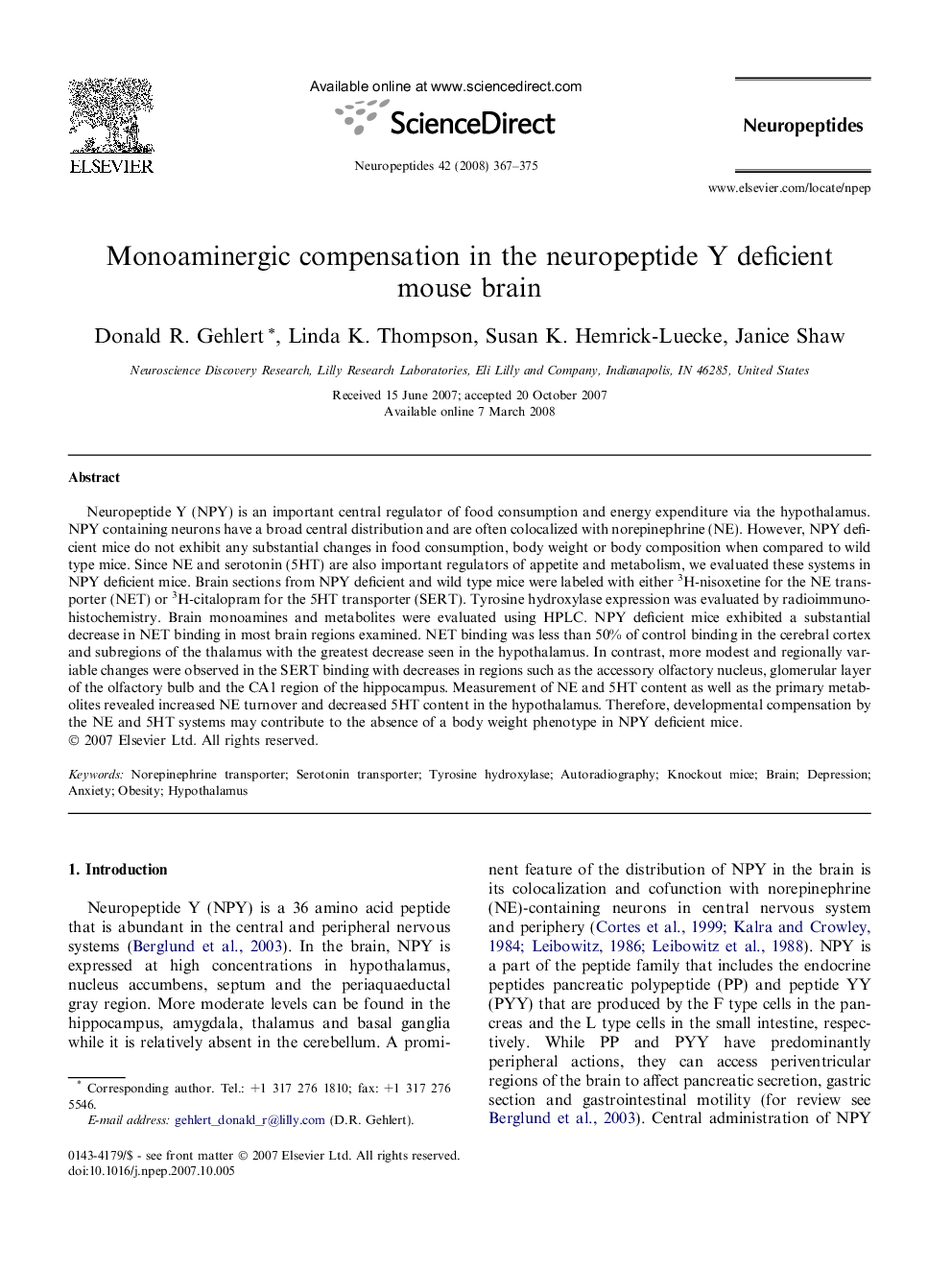| Article ID | Journal | Published Year | Pages | File Type |
|---|---|---|---|---|
| 2808433 | Neuropeptides | 2008 | 9 Pages |
Neuropeptide Y (NPY) is an important central regulator of food consumption and energy expenditure via the hypothalamus. NPY containing neurons have a broad central distribution and are often colocalized with norepinephrine (NE). However, NPY deficient mice do not exhibit any substantial changes in food consumption, body weight or body composition when compared to wild type mice. Since NE and serotonin (5HT) are also important regulators of appetite and metabolism, we evaluated these systems in NPY deficient mice. Brain sections from NPY deficient and wild type mice were labeled with either 3H-nisoxetine for the NE transporter (NET) or 3H-citalopram for the 5HT transporter (SERT). Tyrosine hydroxylase expression was evaluated by radioimmunohistochemistry. Brain monoamines and metabolites were evaluated using HPLC. NPY deficient mice exhibited a substantial decrease in NET binding in most brain regions examined. NET binding was less than 50% of control binding in the cerebral cortex and subregions of the thalamus with the greatest decrease seen in the hypothalamus. In contrast, more modest and regionally variable changes were observed in the SERT binding with decreases in regions such as the accessory olfactory nucleus, glomerular layer of the olfactory bulb and the CA1 region of the hippocampus. Measurement of NE and 5HT content as well as the primary metabolites revealed increased NE turnover and decreased 5HT content in the hypothalamus. Therefore, developmental compensation by the NE and 5HT systems may contribute to the absence of a body weight phenotype in NPY deficient mice.
